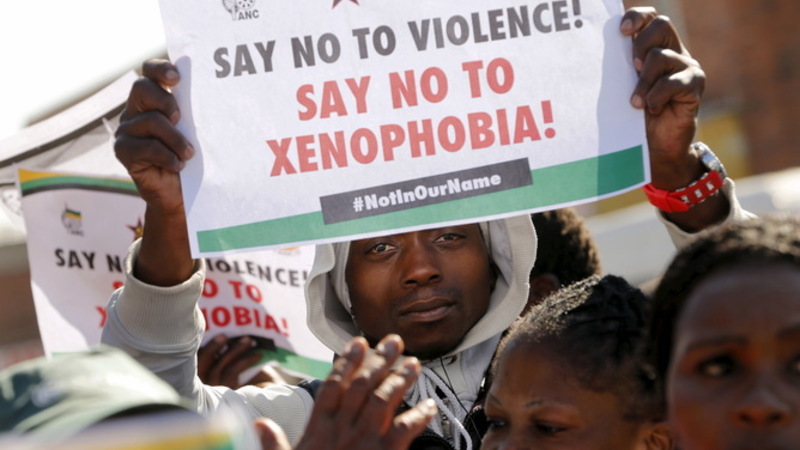Migrants in South Africa have raised concerns that authorities in that country continue to arrest and detain foreign nationals despite some having valid documents.
The arrest of migrants comes after xenophobic attacks that occurred in Johannesburg and Pretoria last month where at least 12 people died, others sustained injuries while property belonging to foreigners was destroyed.
In an interview with CITE, African Diaspora Forum, chairperson Dr Vusumuzi Sibanda, confirmed migrants were being arrested in ‘large numbers’.
“We witnessed a group that was arrested last Thursday in Booysens, totaling over 60. As we spoke to their relatives we were told that they had spent Thursday night in the cells despite many of them carrying some valid documents including asylum seeker permits,” he said.
Dr Sibanda who is also a lawyer described this situation as a “worrying state of affairs”.
“The Immigration Act itself puts the onus on arresting person to help any person who on reasonable grounds appears to be a migrant without proper documents to provide or arrange for the picking of such documents.
“If the documents must be verified this must not be done at the expense of the right to liberty and arbitrary incarceration,” he explained.
A CITE news crew witnessed first-hand Dr Sibanda attending to some of the cases at Moretele Magistrate Court in Temba, Hammanskraal.
The next stop was at New Lock Prison in Pretoria where some of the detainees were supposed to sign a power of attorney over to him so he could act for them in court, as well as stopping over at the Johannesburg Central Police Station.
Throughout the day, Dr Sibanda was inundated by calls from worried relatives requesting his assistance to help those who had been arrested.
He then met with one woman, accompanied by her landlord, whose 25 year old son had been locked up at Johannesburg Central Police station.
At Booysens police station, scores of migrants who apparently had valid documents had benn detained, waiting for the officials from the South African Home Affairs ministry to verify their papers.
The attitude of some of the Home Affairs officials was worrying, as they quizzed Dr Sibanda’s intentions on helping these migrants.
One of the officials dismissed a request made by Dr Sibanda saying, “You are lawyer to them, not to me…but we shall meet in court,” while expressing his disdain.
This was after Dr Sibanda had approached and informed him that one such detainee from Zimbabwe wanted to apply for asylum.
The official said this cannot be condoned and blamed lawyers for making their work of arresting migrants difficult.
“We are worried about this behavior from authorities because surely no one must be inconvenienced just to check if their document is valid or not. It is our view that this is so done easily to migrants because their rights do not really appear to matter or be respected,” Dr Sibanda said to the news crew.
That Friday afternoon a large number of about 20 or more were released after their documents were apparently verified.
Outside Johannesburg Central Police Station, families and friends to those who had been arrested were waiting eagerly and happily embraced them after their release.
One national from West Africa, probably Nigerian, was welcomed with a cup of water from his friends, which he gulped down fast to cheers and clapping.
Dr Sibanda pointed out he is always at court almost every other day and the bulk of the cases are those of people that are held against the provisions of the law.
“It is a shame that migrants are under such serious attacks from government institutions and employees who should help to make sure their protection and fair application of the law.”
This week, Dr Sibanda said he went to court and the police documents were not in order, which prompted them to force the release of all those who holed up at Booysens.
“Practically it was a total of about 87 to be released and we just need to follow up with Johannesburg Central to see if all from their side were released,” he summed.

